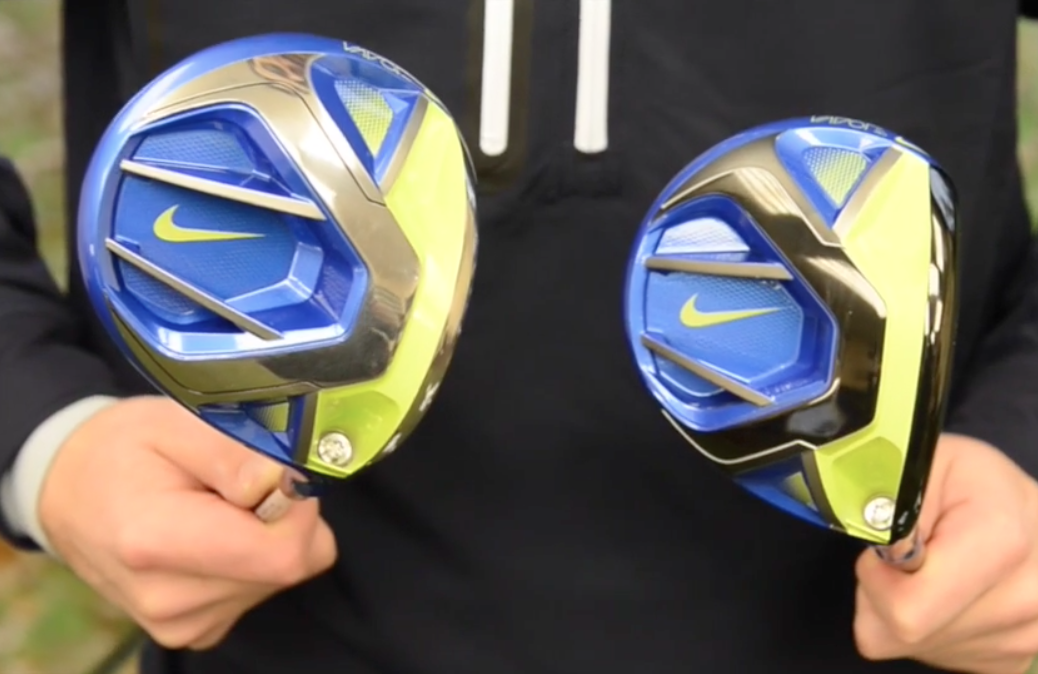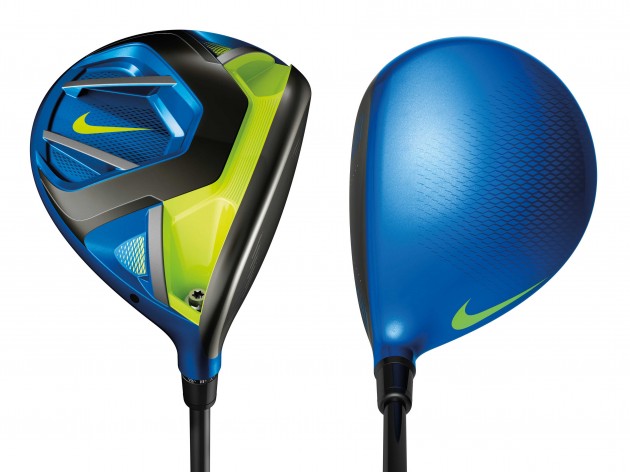Nike Vapor Fly driver review
Golf Monthly's Nike Vapor Fly driver review, with updated technology to increase launch and distance as well as a fresh blue colour scheme


Golf Monthly's Nike Vapor Fly driver review, with updated technology to increase launch and distance as well as a fresh blue colour scheme
Distinguished by its bold blue crown with Volt color in the Compression Channel, the Nike Vapor Fly driver has three key technologies that are said to increase launch, distance and forgiveness while reducing spin.
A new crown design has been made 30 per cent lighter than last year’s model resulting in a lower center of gravity and higher MOI for higher launch, less spin and more forgiveness.
Another new feature is the HyperFlight face, which has been thinned out around the perimeter to minimize ball speed loss on off-centre hits.
The Compression Channel seen on previous drivers has been re-engineered, creating a springboard effect to amplify performance on miss-hits. Finally, the FlyBeams in the Covert Cavity Back have been widened and stiffended to spread weight to the perimeter and increase clubhead stability and efficiency at impact.
Nike Vapor Fly driver review
Get the Golf Monthly Newsletter
Subscribe to the Golf Monthly newsletter to stay up to date with all the latest tour news, equipment news, reviews, head-to-heads and buyer’s guides from our team of experienced experts.
Down by the ball, the contrast between the clubface and crown makes accurate alignment an easier task. The sound at impact remains loud and powerful, offering a slightly high pitched acoustic that’s pleasing on the ears.
While the Vapor Fly driver inspires more confidence, we preferred the pear-shape of the Vapor Fly Pro driver. Performance between the two clubheads was similar, but not identical.
We tested the Vapor Fly with the stock stiff MRC Tensei CK Blue 50 shaft, which felt quite soft for our 103mph clubhead and as result both launch and spin numbers were quite high at 17° and 2600 rpm respectively.

But when testing the Vapor Fly Pro with the heavier MRC Diamana S+ Blue Board 60 shaft, while spin came down overall distance also reduced marginally. This may be because launch angle also came down, perhaps due to the heavier shaft.
From Nike’s own testing, they found the Vapor Fly driver to offer the lowest spin meaning that with the right shaft combination has the potential to work with any swing speed or ability of player. In fact, many Nike Tour athletes gravitated towards the driver with the largest profile last year, taking advantage of the extra forgiveness.

Joel has worked in the golf industry for over 15 years covering both instruction and more recently equipment. He now oversees all equipment and video content at Golf Monthly, managing a team of talented and passionate writers and presenters in delivering the most thorough and accurate reviews, buying advice, comparisons and deals to help the reader or viewer find exactly what they are looking for.
One of his career highlights came when covering the 2012 Masters he got to play the sacred Augusta National course on the Monday after the tournament concluded, shooting a respectable 86 with just one par and four birdies. To date, his best ever round of golf is a 5-under 67 back in 2011. He currently plays his golf at Burghley Park Golf Club in Stamford, Lincs, with a handicap index of 3.1.
Joel's current What's In The Bag?
Driver: Titleist GT3, 9°, Fujikura Ventus Black 6 S shaft.
Fairway wood: Titleist TSR3, 15°
Hybrid: Titleist TSi2, 18°
Irons: Titleist T150, 4-PW
Wedges: Titleist Vokey SM10, 50°, 54° and 58°
Putter: LAB Golf DF3
Ball: 2025 Titleist Pro V1x
-
 The 4 Players Hitting It Further Than Bryson DeChambeau At The 2025 Masters
The 4 Players Hitting It Further Than Bryson DeChambeau At The 2025 MastersBryson DeChambeau is renowned for his immense power and distance off the tee, so I was interested to learn these four players are outdriving him at The Masters
By Barry Plummer Published
-
 Top LIV Golfer? Top Lefty? Leading Amateur? 8 Alternative Masters Leaderboards After Day One At Augusta National
Top LIV Golfer? Top Lefty? Leading Amateur? 8 Alternative Masters Leaderboards After Day One At Augusta NationalJustin Rose leads after the first round of The Masters and, at the first Major of the year, plenty of players have already displayed strong showings at Augusta National
By Matt Cradock Published